Imagine this: it's a cold winter morning, and you must get to work quickly. Your car starts but won't start; its battery has died.
After receiving a jump start and purchasing a replacement battery from the nearest auto parts store, a new issue arises: its electrical system starts acting up with warning lights flashing across your dashboard - all due to forgetting to register it with its onboard computer - an automotive obd2 scanner with battery registration capabilities can come to the rescue!

Understanding OBD2 Scanners with Battery Registration
An OBD2 scanner connects directly to your vehicle's onboard diagnostics system to read and clear trouble codes, monitor performance and perform diagnostic functions.
Battery registration—found on some advanced OBD2 scanners—can be particularly helpful when replacing your car battery.
Modern cars, particularly those equipped with start-stop technology, require that any new battery be registered with their computer system for optimal performance and longevity.
Why Battery Registration Is Important
Replacing a battery in a modern vehicle involves more than simply swapping out an old one for a new battery - the vehicle's Battery Management System (BMS) needs to be informed of this change as well.
Registering your new battery ensures it can manage charging and discharging cycles properly for multiple reasons:
Optimize Battery Performance: Proper registration allows the BMS to match its characteristics with the new batteries, ensuring it charges efficiently while meeting capacity needs.
This adjustment is essential in avoiding overcharging or undercharging, which could significantly reduce battery lifespan.
Avoid Electrical Issues: Failing to register a new battery properly can result in incorrect charging. Your vehicle's electrical system relies on precise data from the BMS for correct functioning; flickering lights, malfunctioning electronic components, or even complete system failure could occur without proper registration.
Resetting the BMS: Registration resets the BMS, helping it clear any error codes related to its previous battery and ensure that its new one is calibrated accurately. This delivers accurate diagnostic information and helps the vehicle run more smoothly.
Enhance Fuel Efficiency: For vehicles equipped with start-stop technology, battery registration helps maximize fuel efficiency.
The BMS controls when and how often an engine should shut off and restart depending on its battery's state, so having accurate information ensures these decisions are made efficiently.
Safety and Reliability: Registering your battery correctly enhances overall vehicle reliability by lowering the risk of unexpected breakdowns and increasing safety by guaranteeing that all systems function effectively.
How Should You Utilize the Battery Registration Function?
How frequently you should utilize your vehicle and usage when it comes to battery registration varies, with some general guidelines being:
After Every Battery Replacement: Utilizing the registration feature is paramount when replacing batteries.
Be sure to register every new one you install with your vehicle system.
Otherwise, improper battery management and possible damage could arise, leading to inappropriate management or even the destruction of its electrical system.
Add Battery Checks to Regular Vehicle Maintenance Checks: Include battery status checks in your schedule every six to 12 months as part of regular vehicle maintenance checks.
Even if no new battery needs to be purchased, using a scanner to monitor its status will help ensure that BMS functions optimally and preserves its optimal condition. For more accurate standalone testing, you can also use a digital battery analyzer to directly assess battery health.
Experience Electrical Issues: If you observe abnormal electrical behavior, such as flickering lights, unusual warning messages, or sudden shutdowns, take immediate steps.
Re-registering your battery could help resolve these issues and restore normal operations.
Before Long Road Trips: Before setting out on any long road trips, inspecting and registering the battery to avoid unexpected breakdowns and ensure its reliable performance throughout your journey is always advisable.
Ensuring it's correctly registered lets you know your vehicle will operate reliably as promised!
Post-Service Check: After any major service that involves disconnection of the battery or electrical system from a vehicle or battery registration function, it should be used as part of a post-service check to ensure that all systems have been recalibrated correctly and functioning as intended.
Regularly using an OBD2 scanner to register and monitor your vehicle's battery can help ensure peak performance and prevent unwelcome surprises.
Key Features to Consider in an OBD2 Scanner With Battery Registration
When shopping for an OBD2 scanner with battery registration capabilities, make sure that it provides maximum value and functionality by considering these key features:
Complete Vehicle Coverage: Be certain the scanner you purchase can support the make and model of the car you drive and others you might work on.
User-Friendly Interface: Look for an intuitive, user-friendly scanner that makes battery registration effortless.
Live Data and Diagnostics: Adding live monitoring data monitoring and additional diagnostic capabilities beyond simple battery registration can significantly add value.
Software Updates: When looking for the ideal scanner, ensure it offers regular software updates to stay abreast of new vehicle models and diagnostic functions.
Choose a scanner with a durable and portable design that can withstand regular usage while being easily transported from place to place.
Utilizing an OBD2 Scanner to Register New Batteries
Registration of a new battery using an OBD2 scanner can be easy. Follow these steps for an effective process:
Connect the OBD2 scanner: Attach an OBD2 scanner to the diagnostic port, typically found under the dashboard.
Turn On Ignition: Switch on your car without starting its engine before connecting OBD2.
Access the Battery Registration Menu: Navigating through your scanner's interface should reveal the battery registration option.
Select Your Battery Type: Provide details about the new battery, such as type and capacity, to be registered by your scanner.
Register the Battery: Follow the onscreen prompts to register your battery. The scanner will communicate with the BMS system to update it with any relevant new information.
Verify Success: Confirm that registration was successful by checking for error codes and verifying that your battery management system (BMS) recognizes your new battery.
Top Recommendations for OBD2 Scanners with Battery Registration
Here are a few recommended OBD2 scanners with battery registration capabilities:
Autel MaxiCOM MK808 features comprehensive diagnostic functions, battery registration, and a 7-inch touchscreen interface.
- Pros: Wide vehicle coverage with frequent software updates.
- Cons: Slightly higher price point but justified by features offered.
Features of Foxwell NT650 Elite include full system diagnostics, battery registration, a 10.1-inch touchscreen display, and wireless connectivity.
- Pros: Extensive vehicle compatibility, a professional-grade tool with robust build quality.
- Cons: Can be complex for beginners; ideal for professionals.
Launch X431 V Pro
Features: Affordable and supports battery registration as well as various reset functions.
- Pros: Cost-effective, user-friendly interface and reliable performance.
- Cons: Limited advanced diagnostic functions compared to higher-end models.
Innova 6100P
Features: This tool reads and clears ABS, SRS, and engine codes and has battery registration capability. Its budget-friendly pricing makes it perfect for DIY enthusiasts.
- Pros: It has a user-friendly interface and a straightforward DIY experience.
- Cons: Few advanced features.

Conclusion
An OBD2 scanner equipped with battery registration capability is invaluable for modern vehicle maintenance.
By registering new batteries properly, you can maximize performance, prevent electrical issues from developing, and extend their lifespan—something a professional mechanic or enthusiast alike should look out for when selecting their vehicle's maintenance routine.
Investing in a high-quality OBD2 scanner featuring this capability can make a real difference!
FAQs
What is an OBD2 scanner with battery registration?
It’s a device that diagnoses car issues and registers new batteries to ensure proper vehicle function.
Why is battery registration important?
Registering a new battery ensures your vehicle's systems recognize it, optimizing performance and lifespan.
How does an OBD2 scanner benefit car maintenance?
It simplifies diagnostics, helps identify issues early, and manages battery registrations for efficient car care.
Can I check my car battery health without replacing it?
Yes. Besides using an OBD2 scanner, you can also test your battery directly with a battery analyzer. A digital battery analyzer provides precise readings of voltage, cranking performance, and overall health, helping you decide whether a replacement is necessary.

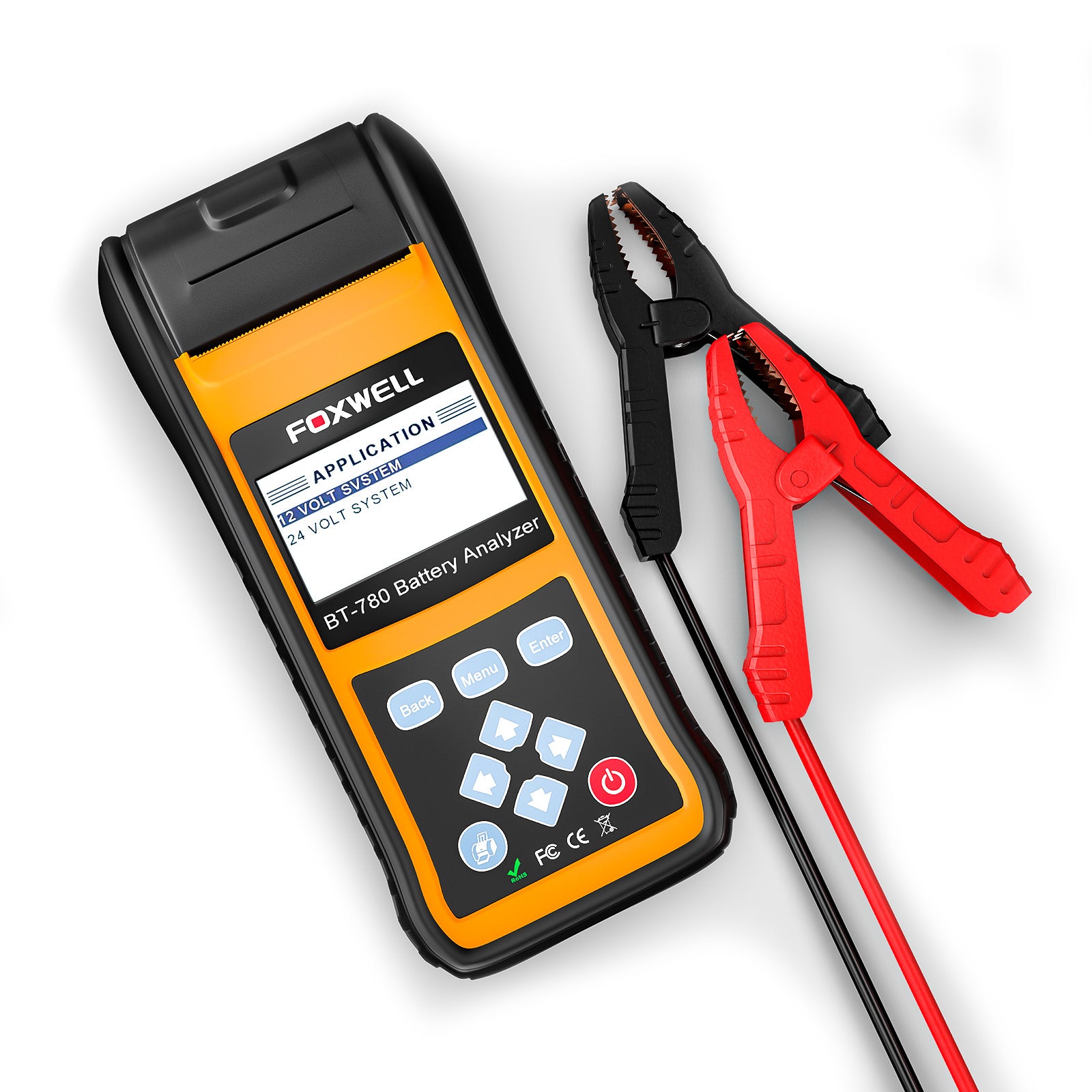
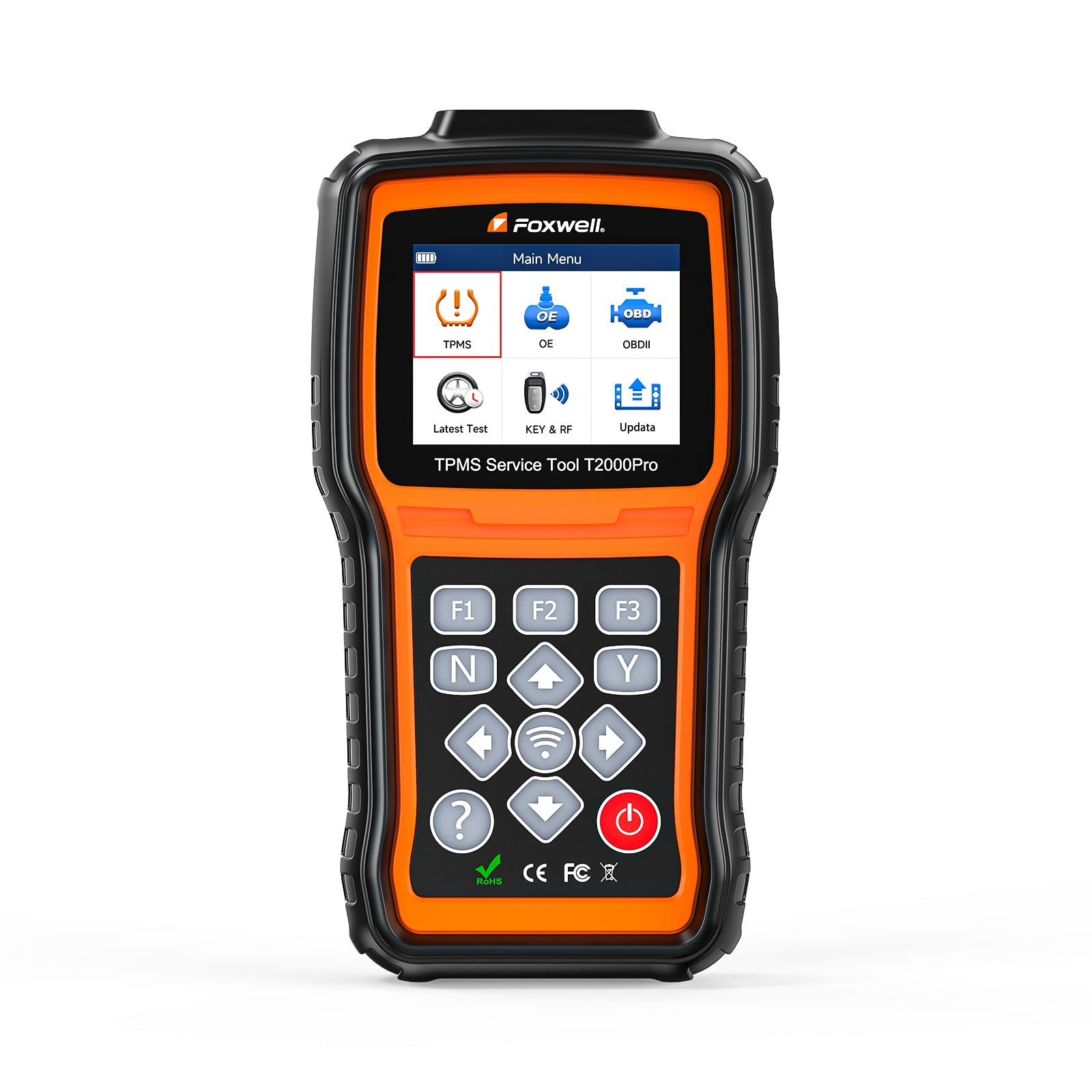
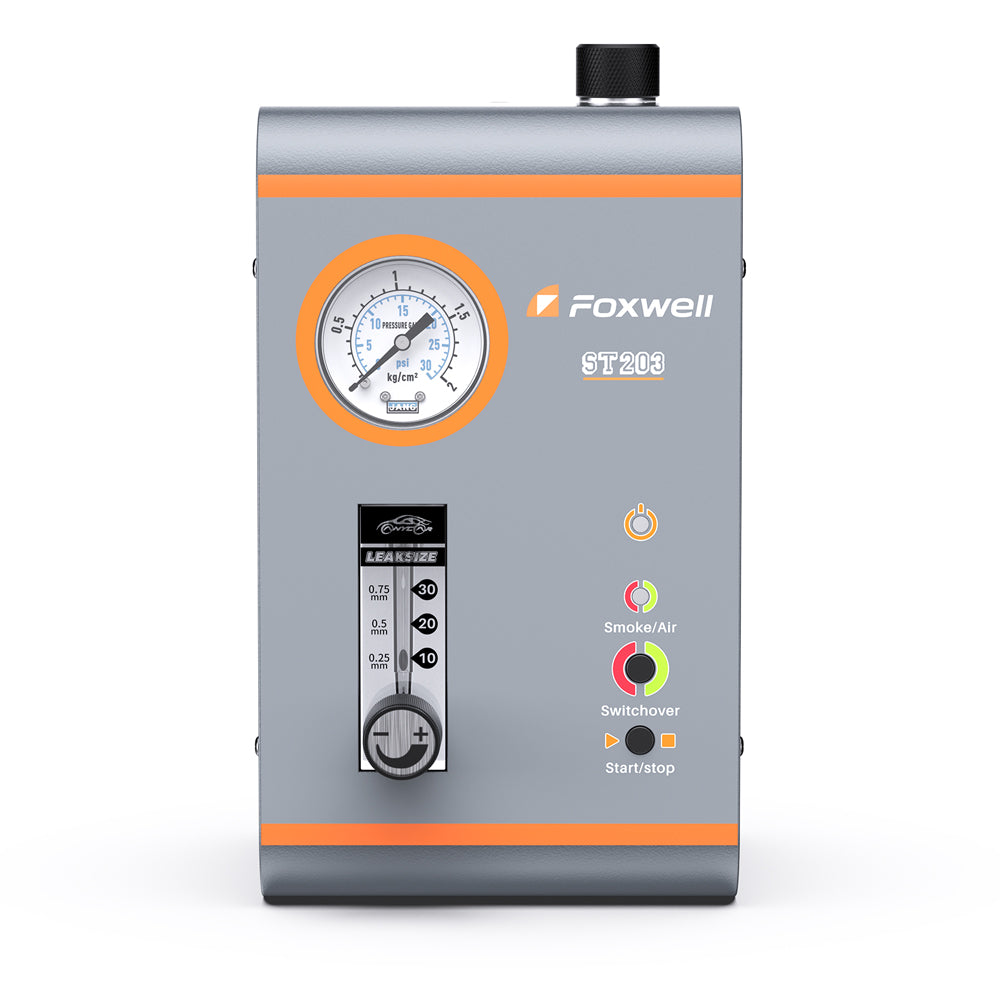
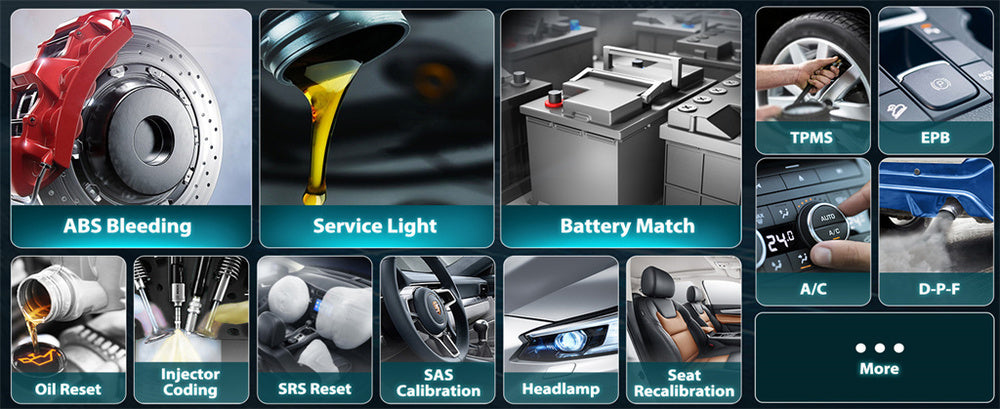
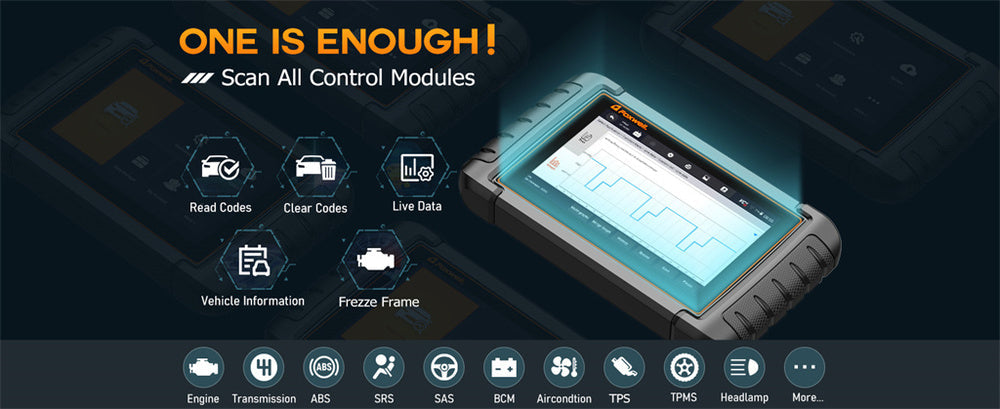
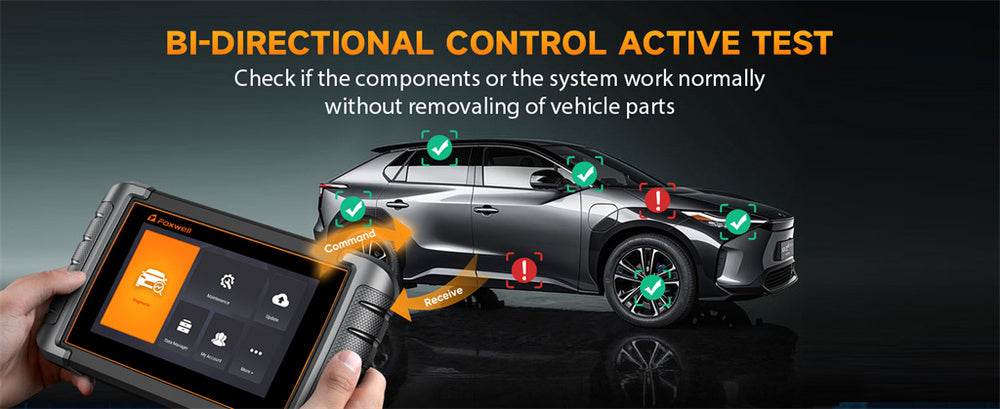
Leave a comment
This site is protected by hCaptcha and the hCaptcha Privacy Policy and Terms of Service apply.